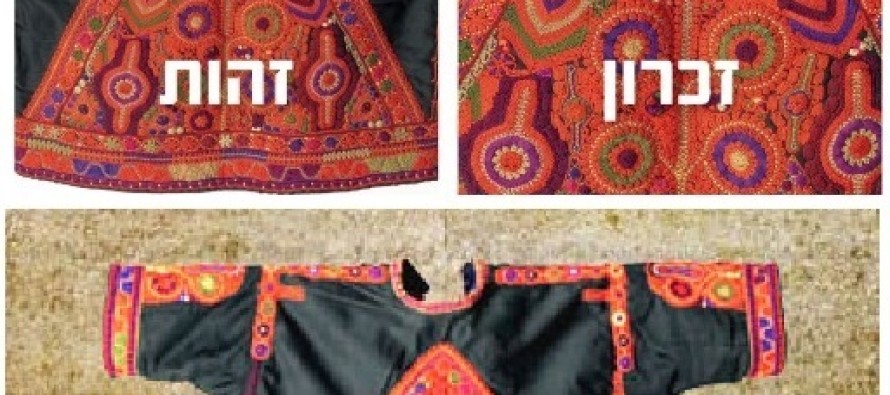
Jerusalem: L. A. Mayer Museum for Islamic Art “Tiraz: Local Embroidery”

OHMYGOSSIP — Here is sth interesting for handicraft lovers! The Museum for Islamic Art presents a spectacular collection of Palestinian costumes, courtesy of the collection’s owner, Manuel Kleidman of Jerusalem.
The L.A. Mayer Memorial Museum for Islamic Art also contains hundreds of objects representing the art of Islamic countries throughout the ages. The museum houses magnificent ceramic ware, figurines and tiles, as well as an outstanding collection of glass and metalwork, Jewelry, and a selection of calligraphy, miniatures and textiles.
What: Tiraz: Local Embroidery (Palestinian Costumes from the Manuel Kleidman Collection).
Curator: Rachel Hasson
Where: L. A. Mayer Museum for Islamic Art (2 Hapalmach St., Jerusalem)
The L.A. Mayer Institute for Islamic Art (Hebrew: מוזיאון ל. א. מאיר לאמנות האסלאם, Arabic: معهد ل. أ. مئير للفن الإسلامي) is a museum in Jerusalem, Israel, established in 1974. It is located in Katamon, down the road from the Jerusalem Theater. The museum houses Islamic pottery, textiles, jewelry, ceremonial objects and other Islamic cultural artifacts. It is not to be confused with the Islamic Museum, Jerusalem.
The museum was founded by Vera Bryce Salomons, daughter of Sir David Lionel Salomons, in memory of her professor, Leo Aryeh Mayer, rector of the Hebrew University of Jerusalem, a scholar of Islamic art who died in 1959. It has nine galleries organized in chronological order, exploring the beliefs and art of Islamic civilization. In addition to Mayer’s private collection, the museum houses antique chess pieces, dominoes and playing cards; daggers, swords, helmets; textiles; jewelry; glassware, pottery and metalware produced in Islamic countries, from Spain to India. A collection of Islamic carpets was added in 1999. A gallery in the museum also displays the David Salomons clock and watch collection. Salomons was the nephew of the first Jewish Lord Mayor of London.
Tiraz: Local Embroidery
The collection of Palestinian dresses decorated with traditional folk embroidery, includes rare items that have never been displayed, and represents the historic, the local and the gender identity of the women in the region. The style of clothing displayed in the exhibition is characteristic of the period spanning thirty years in the first half of the 20th century (1918-1948), and was common in the seven main areas inhabited by the Arab population of Palestine.
The art of embroidery accompanies the Palestinian woman since the dawn of her youth. The techniques, the patterns and the motifs were passed down from mother to daughter throughout the generations. A close look at the embroidery reveals the freedom given to personal expression and creativity, despite the adherence to traditional patterns.
Thanks to the variety of stitches and styles of embroidery, women’s clothing and the accompanying hand-made accessories can be read as a complex language, reflecting the gender identity, the personal, the economic and the social status of the wearer. It is a language that wasn’t always figured out by men. As with every fashion, the Palestinian women’s fashion serves as evidence of the wearers’ choices: what to wear and how to define their identity.
The “Tiraz: Local Embroidery” exhibition is complemented by the adjacent exhibition of works by artist David Roberts, “Scenes of the Land”, which is somewhat of an expansion, or another reading, of it. The Roberts exhibition includes lithographs of scenery in which one can imagine the women wearing embroidered dresses. The lithographs are presented courtesy of Sarah and Amos Mar-Haim of Jerusalem.
The Museum permanently displays items of Islamic art in seven galleries, as well as the magnificent watch collection, which was recovered and returned to the Museum after being stolen almost 30 years ago. Closing: 20th February, 2016
Opening hours:
Sunday: Closed
Monday-Wednesday: 10:00-15:00
Thursday: 10:00-19:00
Friday-Saturday: 10:00-14:00
Tickets:
Adults – 40 NIS | Students, police, soldiers – 30 NIS | Children, teens, seniors – 20 NIS
Find more info about the L. A. Mayer Museum for Islamic Art HERE

 High quality & nature friendly luxury cosmetics from Scandinavia - ElishevaShoshana.com
High quality & nature friendly luxury cosmetics from Scandinavia - ElishevaShoshana.com

